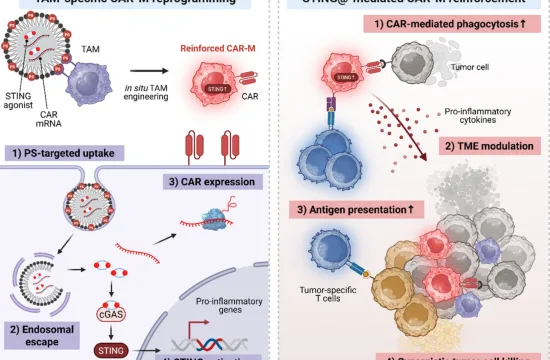|
Getting your Trinity Audio player ready...
|

Osaka, Japan – One monoclonal antibody, rituximab, can work wonders for the treatment of children with frequently relapsing nephrotic syndrome or steroid-dependent nephrotic syndrome. However, what about patients who developed nephrotic syndrome in adulthood?
As this drug is not yet approved for use in adult-onset patients, researchers from Japan wanted to highlight the profound benefits that rituximab has in adult-onset patients with these challenging conditions.
Nephrotic syndrome is a kidney disorder that causes the body to excrete too much protein in the urine. This condition can lead to edema, weight gain, and an increased risk of infections. For adults with frequently relapsing nephrotic syndrome (FRNS) or steroid-dependent nephrotic syndrome (SDNS), management can be particularly challenging. As a result, the researchers at The University of Osaka hoped to provide future disease management options through their research.
The study, a randomized, double-blind clinical trial recently published in JAMA, revealed the effectiveness of rituximab for preventing relapses in adult-onset FRNS or SDNS. The study involved 66 adult patients treated with either rituximab or a placebo. The primary goal was to determine whether rituximab could help maintain remission and reduce the frequency of relapses.
“Rituximab is a monoclonal antibody that depletes B cells, which are key players in the immune system. However, they can sometimes become overactive in nephrotic syndrome, leading to challenging symptoms,” explains lead author, Yoshitaka Isaka. “Rituximab is already used to treat nephrotic syndrome in children, with good success, so we investigated whether these benefits are also seen in adult-onset patients.”
The results have sparked great excitement. At the 49-week follow-up, 87.4% of adult patients treated with rituximab remained relapse-free, compared with only 38.0% treated with placebo. This impressive rate difference implies that rituximab is highly effective for preventing relapses in adults with FRNS or SDNS.
Adding to this revolutionary observation, the researchers found that among the patients who relapsed while initially being treated with placebo, none relapsed after switching to rituximab, and the time spent being relapse-free was longer in those who had rituximab throughout (49.0 weeks vs. 30.8 weeks with placebo).
The efficacy of rituximab at reducing relapses also came at very little cost, demonstrating the drug’s impressive safety. Crucially, no severe drug-related side effects were seen with rituximab, and serious drug-related side effects occurred at similar rates in both groups (3.1% in the rituximab group and 2.9% in the placebo group). The study also highlighted the potential benefits of rituximab in reducing the need for corticosteroids, which are commonly used to manage nephrotic syndrome, but can have undesirable side effects.
“The findings of this study provide critical insights,” says second author Yusuke Sakaguchi. “By reducing the frequency of relapses, rituximab may help adult patients reduce their reliance on corticosteroids and improve their overall quality of life.”
Overall, this clinical trial provides pivotal evidence that rituximab may be a safe and effective treatment option for adults with FRNS or SDNS. By preventing relapses and reducing the need for corticosteroids, rituximab offers renewed hope for better management of this challenging condition in adults.







